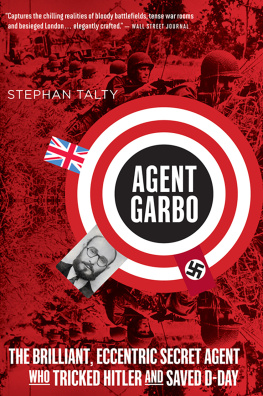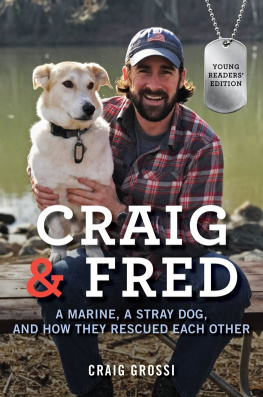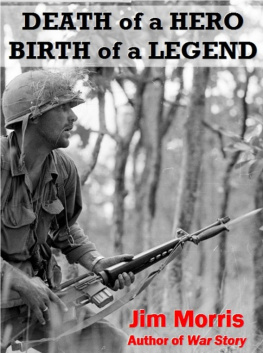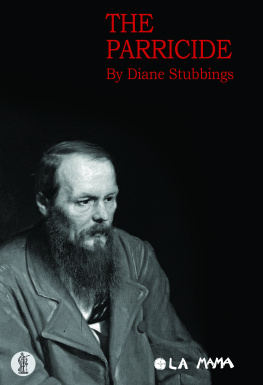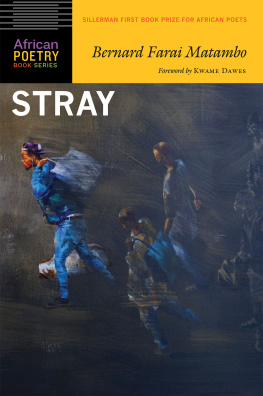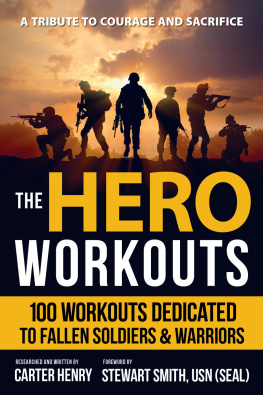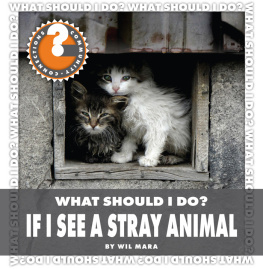Talty - War Hero: The Unlikely Story of A Stray Dog, An American Soldier and the Battle of Their Lives
Here you can read online Talty - War Hero: The Unlikely Story of A Stray Dog, An American Soldier and the Battle of Their Lives full text of the book (entire story) in english for free. Download pdf and epub, get meaning, cover and reviews about this ebook. year: 2015, genre: Detective and thriller. Description of the work, (preface) as well as reviews are available. Best literature library LitArk.com created for fans of good reading and offers a wide selection of genres:
Romance novel
Science fiction
Adventure
Detective
Science
History
Home and family
Prose
Art
Politics
Computer
Non-fiction
Religion
Business
Children
Humor
Choose a favorite category and find really read worthwhile books. Enjoy immersion in the world of imagination, feel the emotions of the characters or learn something new for yourself, make an fascinating discovery.
- Book:War Hero: The Unlikely Story of A Stray Dog, An American Soldier and the Battle of Their Lives
- Author:
- Genre:
- Year:2015
- Rating:4 / 5
- Favourites:Add to favourites
- Your mark:
- 80
- 1
- 2
- 3
- 4
- 5
War Hero: The Unlikely Story of A Stray Dog, An American Soldier and the Battle of Their Lives: summary, description and annotation
We offer to read an annotation, description, summary or preface (depends on what the author of the book "War Hero: The Unlikely Story of A Stray Dog, An American Soldier and the Battle of Their Lives" wrote himself). If you haven't found the necessary information about the book — write in the comments, we will try to find it.
Talty: author's other books
Who wrote War Hero: The Unlikely Story of A Stray Dog, An American Soldier and the Battle of Their Lives? Find out the surname, the name of the author of the book and a list of all author's works by series.
War Hero: The Unlikely Story of A Stray Dog, An American Soldier and the Battle of Their Lives — read online for free the complete book (whole text) full work
Below is the text of the book, divided by pages. System saving the place of the last page read, allows you to conveniently read the book "War Hero: The Unlikely Story of A Stray Dog, An American Soldier and the Battle of Their Lives" online for free, without having to search again every time where you left off. Put a bookmark, and you can go to the page where you finished reading at any time.
Font size:
Interval:
Bookmark:
WAR HERO
The Unlikely Story of a Stray Dog, an American Soldier and the Battle of Their Lives
By Stephan Talty
Copyright 2015 by Stephan Talty
Prologue: Casualties
On October 9, 1918 just over a month before the end of the Great War a soldier from the U.S. First Division carried a badly injured body into the headquarters of the Seventh Field Artillery near Hill 212 in northeastern France. On his way, the medic passed the 155mm howitzers blazing away at German forces hiding in the dense Forest of Argonne and came upon a number of wounded and dead left at the base of the hill. World War I was four years, two months, eleven days, and several hours old.
The soldier dropped to the ground and lay the body among the others. If it looked out of place, it was because the body belonged not to a soldier but to a handsome, brown-haired terrier. The dog was bleeding from several shrapnel wounds, including a deep gash just below its right eye and had inhaled a combination of sulfur dichloride and ethylene, also known as mustard gas. The terrier passed in and out of consciousness. Not knowing what else to do, the soldier left the wounded dog on the ground. He was somebody elses problem now.
The dog lay there for a few minutes, then did something unusual. It shook its head as if waking up from a long sleep and got up unsteadily. It looked around and walked over to a thin, grievously wounded sergeant, who was lying nearby and whose insignia marked him as a member of the Signal Corps of the First Division. The dog bent down and sniffed the soldier and tried to nuzzle him. Getting no response, it lay down next to the sergeant and sank, like him, into a deep unconsciousness.
The scene around the soldier and the dog was as chaotic as at any artillery headquarters in the midst of battle. Gunners called loudly for ammunition, runners arrived bearing messages from the forward units, and medics triaged the wounded. When the medics reached the injured sergeant, he was given a high priority. A tag was affixed to his uniform that read serious and he was loaded, along with the dog, onto a single stretcher and carried toward a staging area where ambulances arrived every few minutes to ferry casualties to a nearby field hospital.
A driver, preparing to load the stretcher into a field ambulance, found the dog at the foot of the stretcher and picked his limp body off the canvas. An artilleryman watched the scene unfold. He was waiting for a shrapnel wound to his leg to be dressed, but now he stumbled across the ground to where the ambulance worker was standing.
What you doin to that dog? he said.
The driver replied that he was leaving him behind. There was no room for animals in the ambulance.
The gunner sucked in a breath, attempting to hold back his anger. He quietly explained to the driver who this particular dog was. The driver nodded but said that regulations forbid the transportation of animals in medical vehicles. There are orders to treat him the same as a soldier! the gunner protested. The medic, startled by the mans vehemence, replied that he needed to hear those orders from an officer. And quickly.
The driver was perhaps right to be confused. Four great empires the Russian, German, Austro-Hungarian, and Ottoman were crumbling because of events on the battlefield and would soon vanish from the earth. Nearly ten million men, 116,000 of them Americans, would lose their lives before the war was over. The Battle of the Meuse-Argonne, which was going on all around the gunner on that October day, remains to this day the single most lethal battle ever fought by American soldiers. It was a scene of wanton butchery.
In the midst of all this men with severed limbs and bloody, disfiguring wounds being loaded onto the ambulance the gunners sole focus was a two-year-old Scotch terrier. Knowing the dog would die if left behind seemed to bother the man intensely, and seeing him separated from the soldier apparently violated a conviction that had clearly taken root in the gunners mind. Whatever happened, the two had to stay together. The gunner wasnt the only soldier in an American uniform who felt this way.
As the ambulance driver attended to another soldier, the gunner staggered off in search of a captain or a major someone, anyone to issue the order that would save the dogs life.
Chapter One: In the Eighteenth Arrondisement
Paris has been the birthplace of many love affairs, but the one that began late one evening in July 1918, in the hilly district of Montmartre, surely ranks among the most memorable.
A hundred thirty meters up, the sprawling city, a capital in its fourth year of a bitter, nightmare-inducing war, was completely dark. German zeppelins had dropped bombs early in the offensive, spreading panic and altering Pariss very nature. Officials had gone so far as to remove the ancient stained glass windows of Notre Dame and replace them with panes of pale yellow, which cast a tepid light over worshippers. Men missing an arm or a leg hobbled down the Champs-lyses, where the arching chestnut trees showed gaps created when foragers had cut down trees for firewood. Shortages of bread and milk had thinned the faces of the locals. Piles of rubble stood in front of razed storefronts. The metropolis that would dazzle Fitzgerald and Hemingway in a few short years was nowhere in evidence.
General George S. Patton sensed Frances depression when he arrived in the summer of 1917. As a remedy, he handpicked a group of men from the First Division, the famous Big Red One, and ordered them to march in the annual Bastille Day parade. With this display, Patton hoped to show the world that the American Expeditionary Force, the AEF fresh-faced, strapping young men from the heartland had arrived and would soon turn the war in the Allies favor. Whether the Parisians believed him was debatable, but it was a fine parade.
Private James Donovan had attended the festivities that day. He was a member of the Signal Corps, a specialized unit responsible for developing and managing communications and information systems for the command and control of the U.S. armed forces that was the eyes and ears of the AEF on the battlefield. Little is known about Donovans origins, only that he was a tall Midwesterner. Its possible hed come from a career in the telephone industry. Many of the men in the Signal Corps had been drafted straight out of the ranks of the Bell System and AT&T, where theyd worked as linemen or cable splicers. The U.S. Army needed them to keep touch with the two million soldiers it was sending to France.
Donovan, like the other soldiers of the First, was proud of his unit, probably a bit cocky even. The 1st Division possessed a pride and swagger absent elsewhere in the AEF, historian Edward G. Lengel wrote. The boys of the Big Red One believed they were the best soldiers in the Army: the best trained, the strongest, the most indomitable in battle. But Donovan and his mates had been shocked by the palpable desperation theyd found in France. Everywhere they looked, it seemed, the young wives of fallen soldiers, dressed in black, haunted the streets. The western front was evidently a carnage house, and they were headed straight for it.
That afternoon, Donovan had taken the opportunity to get drunk, stinking drunk. So drunk, in fact, that hed stumbled away from his unit, took a wrong turn, and was now lost in Montmartre, the way Shackleton had been lost in Antarctica. The Midwesterner wandered the hilly district looking for a familiar landmark, but with the blackout, the streets were all shadows and slivers of light.
His unit was scheduled to move out to the front in a matter of hours, and Donovan, who was sobering up fast, had no idea how to reach them. If they left without him, he would be considered a deserter. Technically, the penalty for desertion was a firing squad. Highly unlikely in Donovans case, but the consequences would still be unpleasant. The American, who spoke no French and couldnt ask for directions, was trying not to break his teeth on the cobblestoned streets. As he stumbled along a dark alleyway, his feet got tangled in a bundle of rags and he nearly toppled over. He would have kept going had he not heard, or thought he heard, the bundle whimper and then let out a subdued but friendly bark.
Next pageFont size:
Interval:
Bookmark:
Similar books «War Hero: The Unlikely Story of A Stray Dog, An American Soldier and the Battle of Their Lives»
Look at similar books to War Hero: The Unlikely Story of A Stray Dog, An American Soldier and the Battle of Their Lives. We have selected literature similar in name and meaning in the hope of providing readers with more options to find new, interesting, not yet read works.
Discussion, reviews of the book War Hero: The Unlikely Story of A Stray Dog, An American Soldier and the Battle of Their Lives and just readers' own opinions. Leave your comments, write what you think about the work, its meaning or the main characters. Specify what exactly you liked and what you didn't like, and why you think so.


